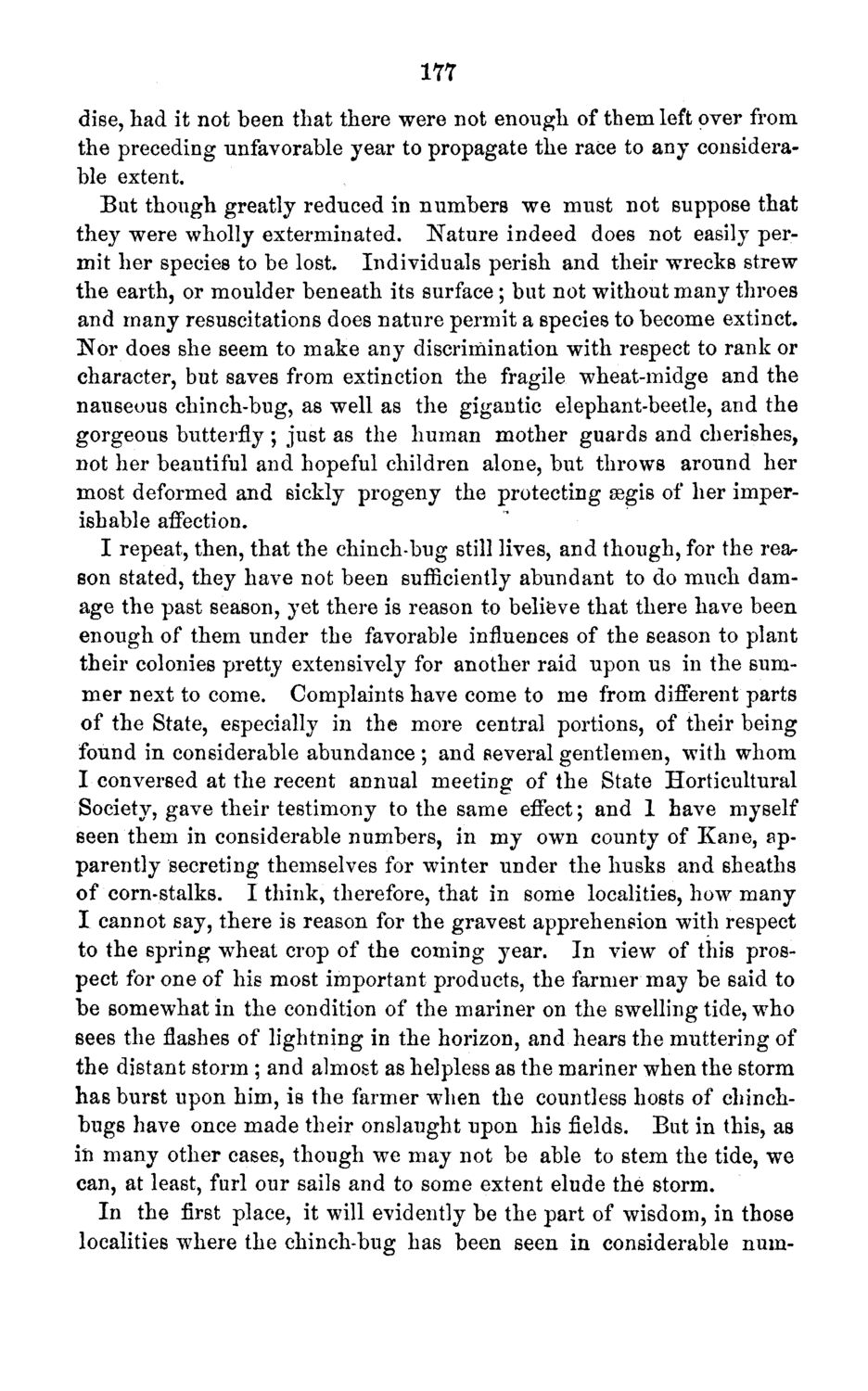| |
| |
Caption: Board of Trustees Minutes - 1871
This is a reduced-resolution page image for fast online browsing.

EXTRACTED TEXT FROM PAGE:
m dise, had it not been that there were not enough of them left over from the preceding unfavorable year to propagate the race to any considerable extent. But though greatly reduced in numbers we must not suppose that they were wholly exterminated. Nature indeed does not easily permit her species to be lost. Individuals perish and their wrecks strew the earth, or moulder beneath its surface; but not without many throes and many resuscitations does nature permit a species to become extinct. Nor does she seem to make any discrimination with respect to rank or character, but saves from extinction the fragile wheat-midge and the nauseous chinch-bug, as well as the gigantic elephant-beetle, and the gorgeous butterfly ; just as the human mother guards and cherishes, not her beautiful and hopeful children alone, but throws around her most deformed and sickly progeny the protecting segis of her imperishable affection. I repeat, then, that the chinch-bug still lives, and though, for the reason stated, they have not been sufficiently abundant to do much damage the past season, yet there is reason to believe that there have been enough of them under the favorable influences of the season to plant their colonies pretty extensively for another raid upon us in the summer next to come. Complaints have come to me from different parts of the State, especially in the more central portions, of their being found in considerable abundance ; and several gentlemen, with whom I conversed at the recent annual meeting of the State Horticultural Society, gave their testimony to the same effect; and 1 have myself seen them in considerable numbers, in my own county of Kane, apparently secreting themselves for winter under the husks and sheaths of corn-stalks. I think, therefore, that in some localities, how many I cannot say, there is reason for the gravest apprehension with respect to the spring wheat crop of the coming year. In view of this prospect for one of his most important products, the farmer may be said to be somewhat in the condition of the mariner on the swelling tide, who sees the flashes of lightning in the horizon, and hears the muttering of the distant storm ; and almost as helpless as the mariner when the storm has burst upon him, is the farmer when the countless hosts of chinchbugs have once made their onslaught upon his fields. But in this, as in many other cases, though we may not be able to stem the tide, we can, at least, furl our sails and to some extent elude the storm. In the first place, it will evidently be the part of wisdom, in those localities where the chinch-bug has been seen in considerable num-
| |